Since President Kennedy's Irish visit in June 1963, almost every US president has traveled to Ireland, many visiting their ancestral homes.
It was really when President Barack Obama visited his ancestral family home in Moneygall, Co Offaly in 2011 that historians were encouraged to take a closer look at the American presidents with roots in Ireland.
John Robert Greene, a historian, and author of dozens of books explained: "It's very simple, Catholic votes… There's not a huge love of Irish tradition, with the possible exception of JFK, Reagan, and Bill Clinton, but there's a huge love for Catholic votes and particularly Irish Catholic votes."
Here's the lowdown on all the US Presidents with Irish roots:
We look forward to @POTUS Joe Biden's visit to the Republic of Ireland in the next few days!
The 46th President of the United States can trace his Irish ancestry back to counties Louth and Mayo. Biden is one of the 23 US presidents who boast Irish heritage ☘️ pic.twitter.com/VtYKxZULKW
— EPIC The Irish Emigration Museum (@EPICMuseumCHQ) April 9, 2023
Irish American presidents
The complete list of US presidents with Irish roots includes:
- Andrew Jackson
- James Knox Polk
- James Buchanan
- Andrew Johnson
- Ulysses S. Grant (also the first US president to visit Ireland)
- Chester A. Arthur
- Grover Cleveland
- Benjamin Harrison
- William McKinley
- Theodore Roosevelt
- William Howard Taft
- Woodrow Wilson
- Warren G. Harding
- Harry S. Truman
- John F. Kennedy
- Richard Nixon
- Jimmy Carter
- Ronald Reagan
- George H. W. Bush
- Bill Clinton (he claims Irish ancestry, though this is disputed)
- George W. Bush
- Barack Obama
- Joe Biden
Most of the Irish American presidents have their roots in Co Tyrone and Co Antrim and come from a Protestant background in 19th-century Ulster. They generally settled in the south and west in the US.
Later, they labeled themselves Scots-Irish in a bid to distinguish themselves from the Catholics fleeing Ireland during the potato famine of the 1840s. It would be better served if those running for the presidency did not associate with those coming out of Ireland, who were being accused of stealing American jobs.
During the early 20th century, those attitudes began to change, and then along came John F. Kennedy.
President John F. Kennedy
Although neither his parents nor grandparents were born in Ireland, Kennedy forged a solid Irish identity and he became the first Catholic to take office. At Kennedy's rallies, filled with prominent Irish Catholics such as Tip O'Neill, "Danny Boy" was the tune of choice.
Talking about Kennedy, Greene said, "He clearly wanted the link to the Irish, and he made himself more Irish than any other American president."
Since Kennedy, every president apart from Gerald Ford has claimed some sort of Irish ancestry, says Greene. Although he commented that in Bill Clinton's cas,e there was no evidence.
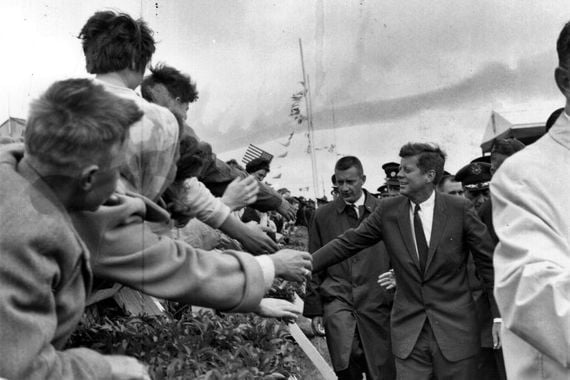
President John F. Kennedy in Ireland in 1963. (Getty Images)
President Ronald Regan
In 1984, President Ronald Regan and his wife Nancy famously visited Ballyporeen in Co Tipperary. Eight bed-and-breakfasts, two cafes, and souvenir businesses opened. The tourist boom lasted for six or seven years.
The local pub was renamed after the president before he even arrived and after his death in 2005, the Reagan presidential library acquired the interior of the pub. The walls were decked with images of the president around the world.
The pub's owner, Mary O'Farrell, told the BBC, "He was real Irish in temperament …You'd know he was Irish, he had that sense of humor and glint in his eye."
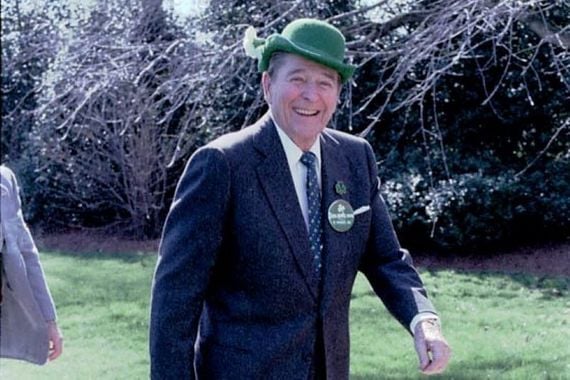
President Ronald Reagan on St. Patrick's Day. (Ronald Reagan Library)
President Bill Clinton
Though President Clinton's Irish roots are disputed, the 42nd President of the United States played a major role in securing the seminal 1998 Good Friday Agreement.
On November 30, 1995 - about three years before the Agreement was signed - Clinton became the first US President to visit Northern Ireland.
President Barack Obama
In 2007, noted genealogist Megan Smolenyak traced then-candidate Barack Obama’s Irish ancestry on his mother’s side, eventually finding that his third great-grandfather, Fulmoth Kearney, left Moneygall, Co Offaly for New York in 1850.
The discovery partly inspired the President and First Lady Michelle Obama to pay a visit in May 2011, which was met with great fanfare. Today, the presidential visit is commemorated in Co Offaly with Barack Obama Plaza.

US President Barack Obama in Ireland in 2011. (RollingNews.ie)
President Joe Biden
46th President Joe Biden made a point of highlighting his Irish roots throughout his lengthy political career. He made an official visit to Ireland - which included stops in Belfast, Louth, Dublin, and Mayo - in April 2023.
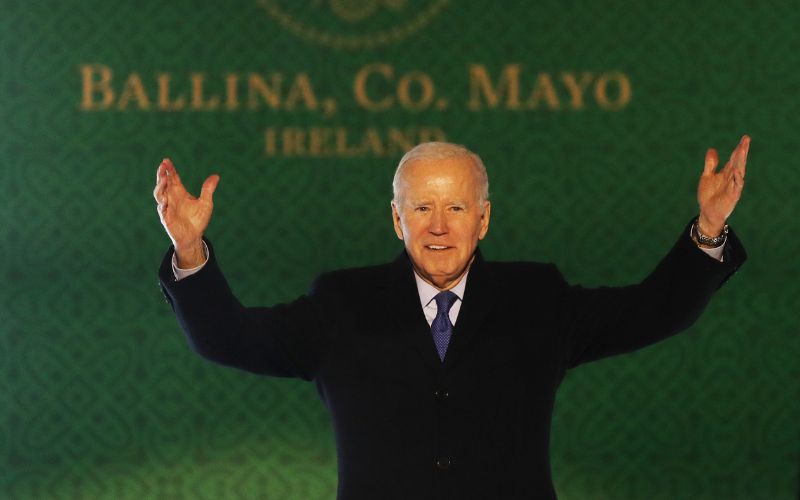
President Joe Biden in Ballina, Co Mayo. (RollingNews.ie)
The reputation of the Irish in the US
Carl Shanahan, the founder of Wild Geese, an organization that promotes Irish culture in the US and worldwide, says, "Being Irish doesn't hurt you at any level of society.
"We were never at war with Americans like the Germans, the Italians, and the Japanese. In Washington's army, the numbers were a third Irish or Scottish-Irish …There is an affinity by association. It's the reputation of the Irish, the Fighting Irish. A guy who gets off his feet and fights the battle and wins. We had boxing champs and baseball teams."
He continues, "We fought their wars, opened up their territories, and built their cities. There's nowhere to tell that story and if we don't tell it, then people will forget."
One excellent demonstration of this is the St. Patrick's Day parade, which is older than the United States itself. The first parade took place in New York in 1766, ten years before the Declaration of Independence.
* Originally published in 2013, updated in January 2026.
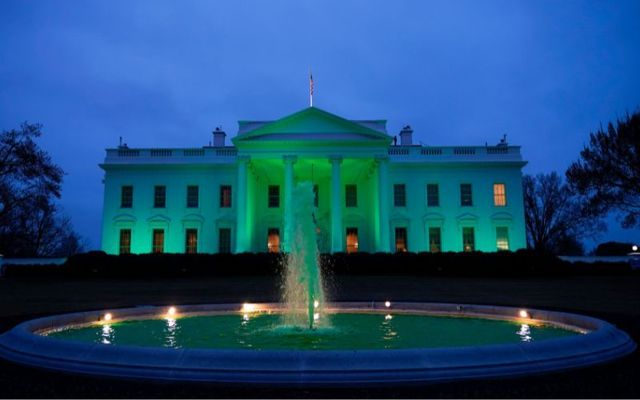
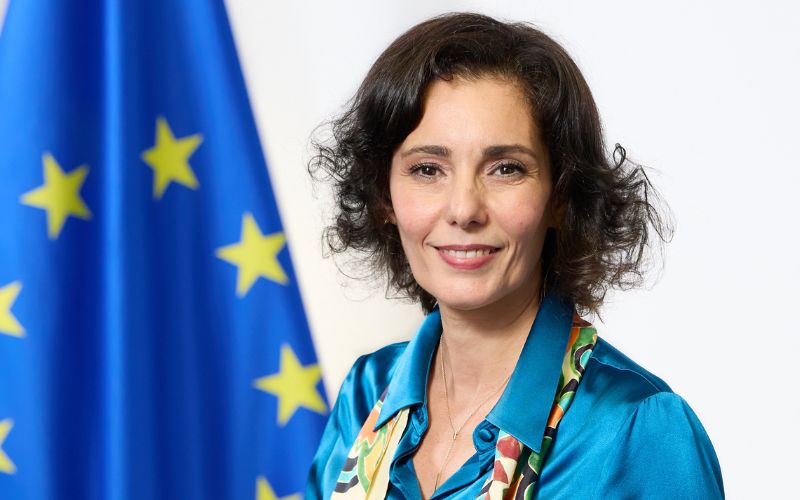

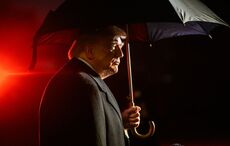
Comments